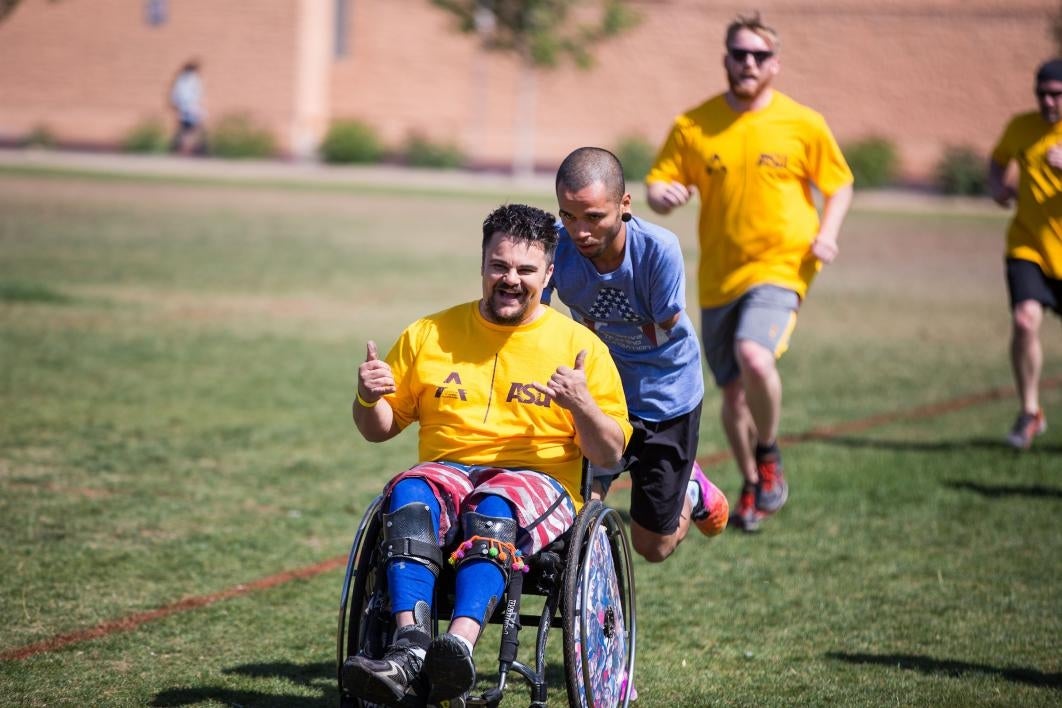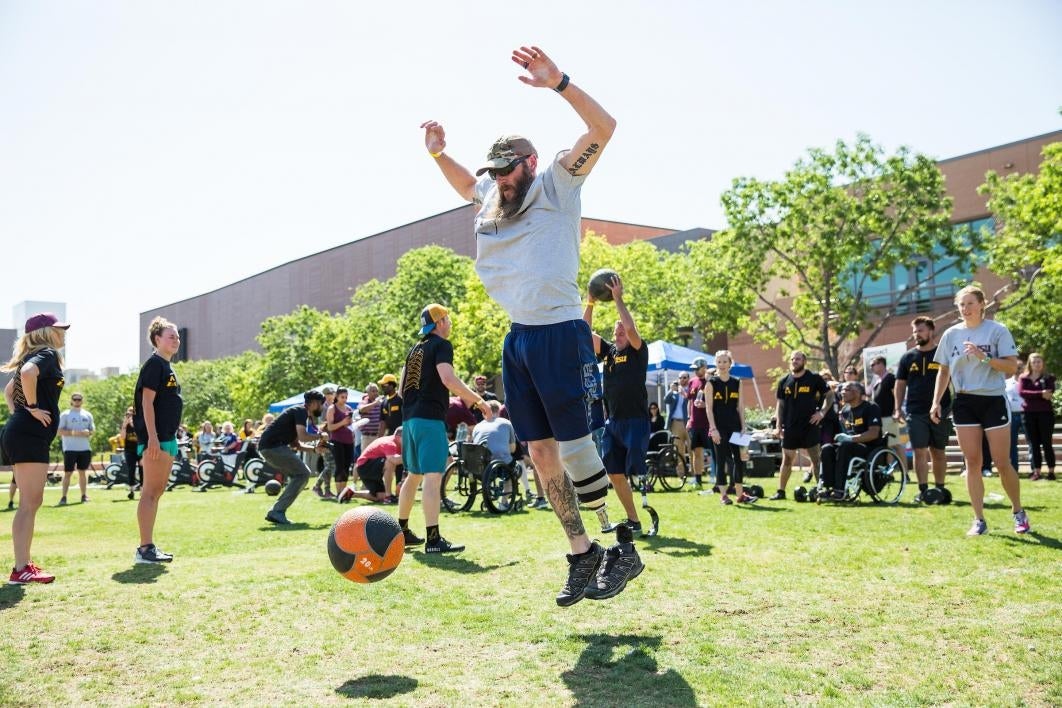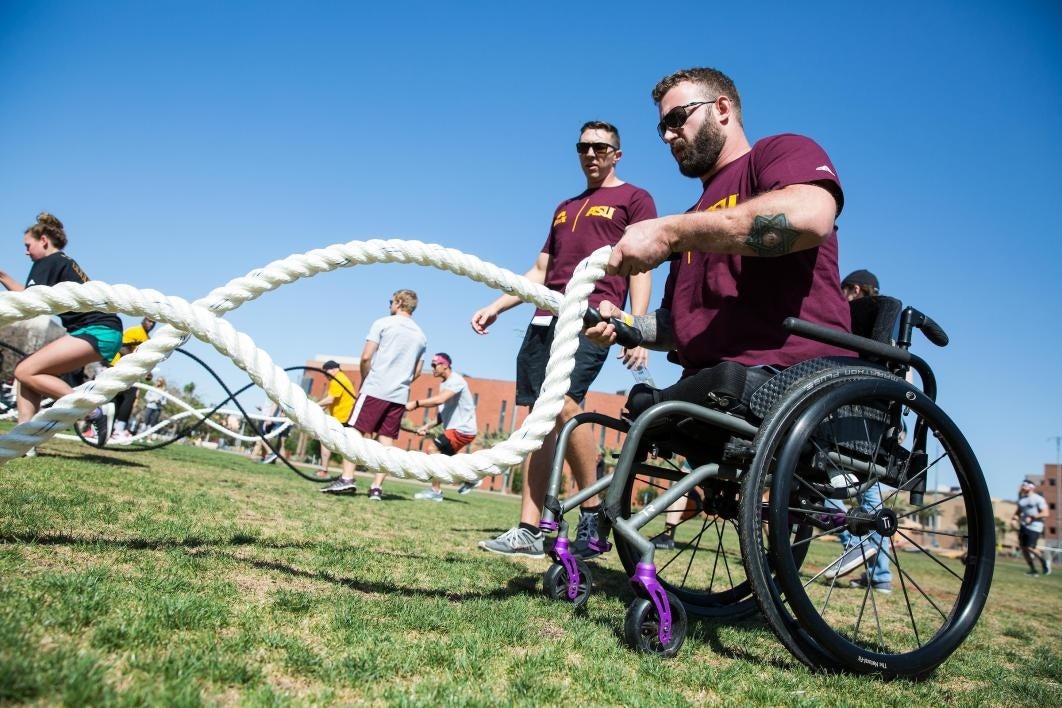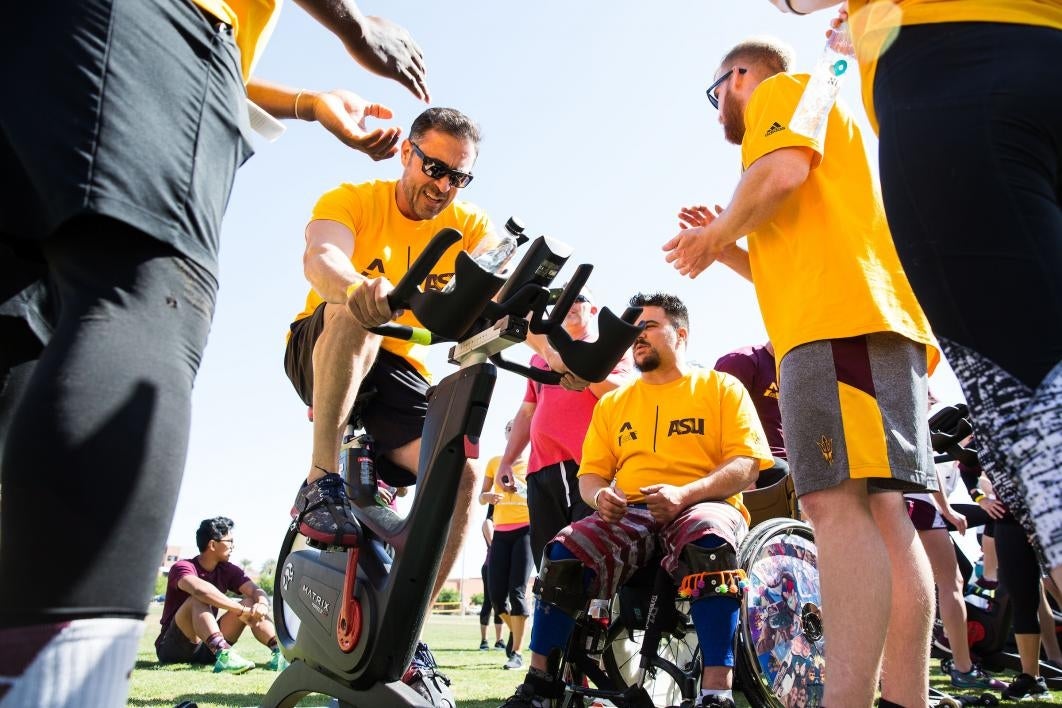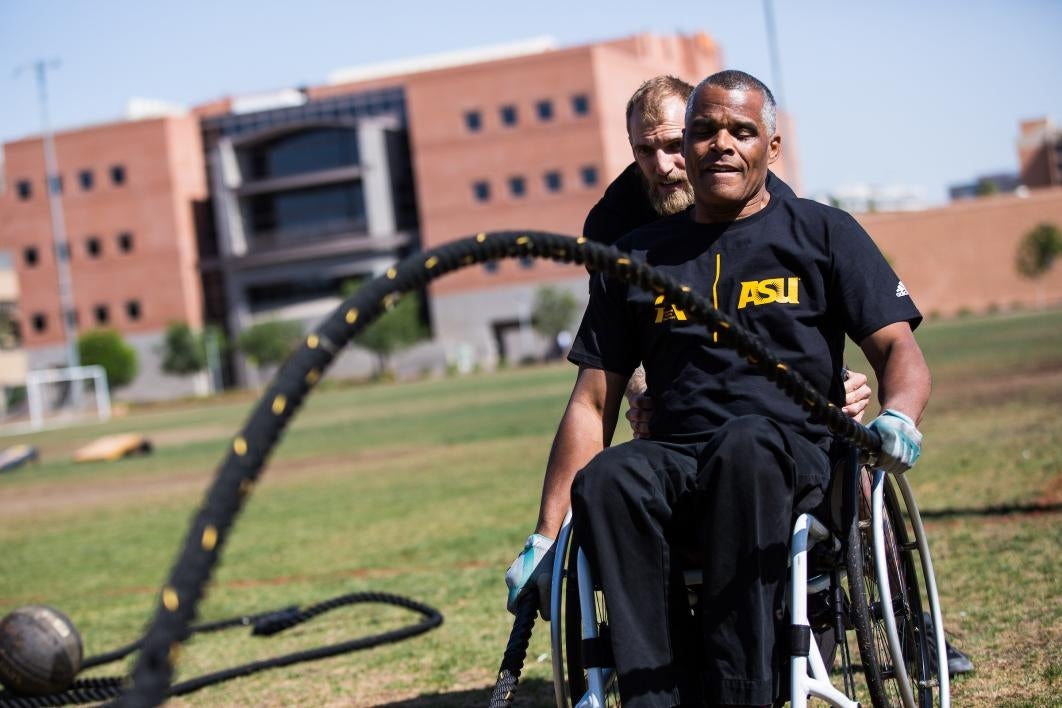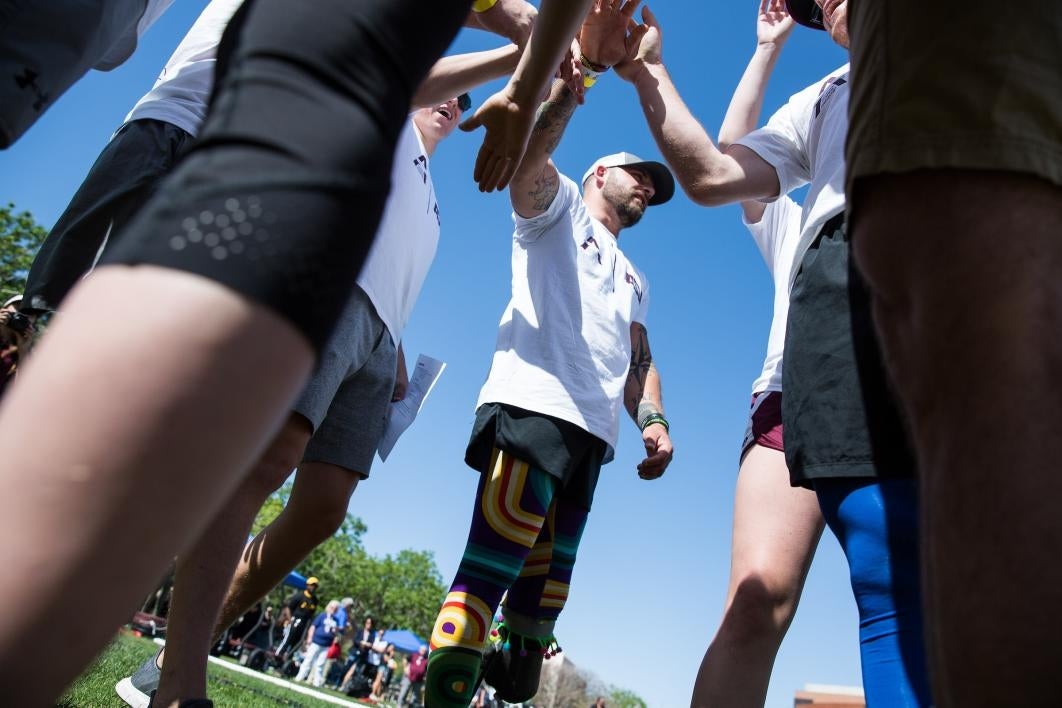ASU presents Devils Adapt kickoff event celebrating adaptive fitness, achievement and inclusion

Brian Aft, adaptive athlete and U.S. Marine Corps veteran, participates in Devils Adapt, which took place at ASU's Tempe campus on April 20. Photo courtesy of Sun Devil Fitness
Through a community collaboration with Adaptive Training Foundation, Arizona State University launched Devils Adapt, an initiative that aims to provide resources and opportunities in recreational and competitive adaptive sports.
A kickoff event presented Friday, April 20, on the Sun Devil Fitness Complex fields at ASU’s Tempe campus highlighted fitness and a commitment to inclusion while providing adaptive athletes the opportunity to shine. Teams made up of adaptive athletes, Sun Devil student-athletes, ASU and ATF staff competed in an obstacle course race designed to challenge, test resilience, strength and stamina while building community among the athletes.
“This is a unique and exciting collaboration that allows us to transform lives through engagement, exercise and community,” said Julie Kipper, executive director of Wellness at ASU and the Sun Devil Fitness Complex at ASU’s Tempe campus.
After his time as a professional athlete, ATF Founder and CEO David Vobora noticed that although many excellent rehabilitation programs existed, none bridged the gap from basic functional rehabilitation to adapted sports. The foundation provides a venue for athletes to train, but more importantly an environment where diverse individuals collectively push and support each other.
“ATF promotes working together as a tribe, as a unit, and that is what ASU’s vision aims to do in terms of having a positive impact in one another’s lives,” said Jason Hill, an exercise and wellness major and SDFC student employee.
Members of the larger community were invited to cheer on the athletes as they competed in the first-of-its-kind Devils Adapt obstacle course, join the fun by participating in a spectator challenge and share their experiences on social media.
“The most powerful thing about (the event) was the adaptive athletes and other individuals working together and bonding to finish the race,” said Jonathon Chasteen, a biomedical engineering major at ASU.
Written by AJ Montes
More Health and medicine

10 companies, 5 nations, 1 accelerator: A wide range of innovative health care solutions
The 10 companies participating in the 2025 Mayo Clinic and ASU MedTech Accelerator program hail from five different nations and…

'Incredible milestone': ASU, city of Phoenix announce location for ASU Health headquarters
Citing the need for a “new way” of doing things, Arizona State University President Michael Crow said that the headquarters for…

Have a health question? This newsletter is for you
You sprain a knee while playing basketball. Your stomach hurts all the time. You keep getting bad headaches.What’s the first…


